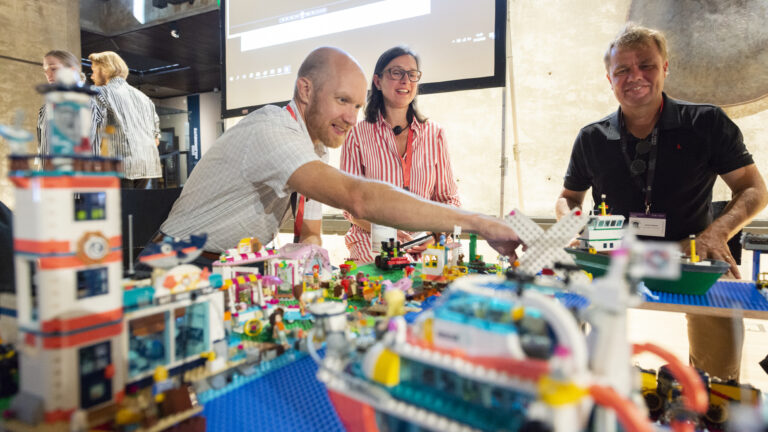
The Five Rings: Water
In 2020, because of COVID-19, the tenth ABOAGORA Symposium held 19–21 August adopted a new, hybrid form: parts of the programme at the museum were conducted remotely.
Water is rapidly becoming one of the most contested natural resources of our time. Will the basic human need for water cause wars and conflicts in the future, or will it serve as a uniting element that opens our eyes to our common humanity and the need to work together across borders of states, creeds, and ideologies to secure clean water supplies for all in the future? Will water, in the end, prove to be thicker than blood?
The event was live-streamed and recorded, so it was safe to follow the Symposium amidst the pandemic from the office, sofa, or even from the pier, surrounded by water.
Water
Water is the beginning of life according to numerous mythological and religious cosmologies. God “made from water every living thing,” as this nomadic conception is formulated in the Qur’an. This is a point where scientific theories of evolution and religious narratives agree: water is the primordial element. Up to 60 % of the adult human body is water, which makes it a vital aspect of medical and physiological research.
After the previous three-year thematic cycle The Threads of Fate, in 2019 Aboagora launched a new five-year thematic plan for 2019–2023 under the title The Five Rings.
The title refers to the book The Book of Five Rings, written in 1645, by Miyamoto Musashi (宮本 武蔵, c. 1584–June 13, 1645). He was a Japanese swordsman, philosopher, writer and rōnin – a samurai without a master. Musashi became renowned through stories of his masterful double-bladed swordsmanship and undefeated record in his 61 duels. Many consider him the greatest swordsman that ever lived. Near the end of his life, Musashi retreated to live as a hermit in a cave, to meditate and write a manual of kenjutsu, Japanese swordmanship, and martial arts. This practical book extends towards a philosophy of life, aiming at simplicity and no-nonsense. Throughout the years, it has also been read by people rethinking ways to lead or do business. The Book of Five Rings (五輪書, Go Rin no Sho) is divided into five books, each examining a different element of battle, just as there are different physical elements in life in Eastern religions. The five Aboagora symposia in 2019-2023 delved into these elements: earth, water, fire, wind and void.
Agora lectures from Aboagora 2020 are available on ABOAGORA’s YouTube channel:
Janet M. Davis
Professor of American Studies and History, The University of Texas at Austin
Sharkmania: A Cultural History
Marko Röhr
director, writer, film producer
The Eternal Circulation of Water. A Visual Journey into the Arctic Waters, Myths and Facts
Carola Hein, Negar Sanaan Bensi & Jens Jorritsma
Carola Hein (Professor of History of Architecture and Urban Planning, Delft University of Technology), Negar Sanaan Bensi (Lecturer, Delft University of Technology) & Jens Jorritsma (urban designer, teacher, researcher)
Historical Waterscapes: Adaptive Strategies between Technology and Art
David Grossman & Natalie Lantz
David Grossman (author) & Natalie Lantz (translator)